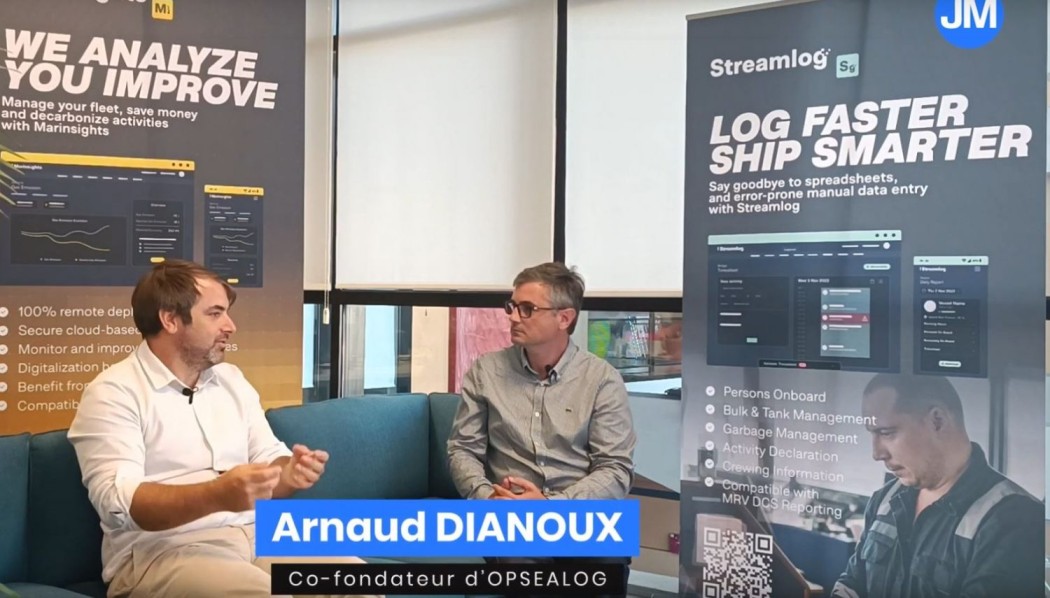Few vessels report electronically
Did you know that in 2019, over 400 billion pieces of plastic entered our oceans? That’s about the same weight as 4,500 blue whales. And the crazy thing is a massive 80% of this plastic comes from land-based sources, such as rivers and other areas, straight into water systems.
Shipping industry waste management record books are old and breaking apart at the edges. Only 7% of vessels log electronically, and that’s a problem because it means much of the information goes to waste in paper form.
In September, Arnaud Dianoux, our Managing Director, had the pleasure of doing an interview with Aymeric Avisse, from JEUNE MARINE, about the future of maritime data management.
In the interview, Arnaud talks about how we’re focused on making sure that all of our clients have access to all the information they need to use in their day-to-day activities. And he also takes a moment to explain why we think it’s so critical for everyone involved in marine operations to have access to data management tools like ours.
During the interview, Arnaud talks about our latest release: Streamlog Garbage Record Book, and our vision in regard to maritime data management and environmental impact mitigation.
Interview Jeune Marine
Read the interview transcript in English:
JEUNE MARINE: I think you have new products to show us.
Arnaud Dianoux: In this new phase of diversification of OPSEALOG’s products, we are accompanying shipowners in their environmental reporting. I am delighted to announce that we are now the first french electronic logbooks supplier. With our garbage record book, instead of filling data on paper, crews can now enter it into Streamlog. Which digitizes all the Excel files requested by shipowners and charterers and will now also digitize the “garbage record book.” Then we will integrate the “oil record book” part and finally the “bridge” and “engine log book” versions.
JEUNE MARINE: What is the interest of the shipowners to suppress a paper notebook which cost them almost nothing?
Arnaud Dianoux: All this data is a gold mine, this information compiled on paper logs or on Excel files is really valuable. This data is currently used only in the case of major incidents or pollution. However, this reliable information, today on paper, will end up gettinglost. We want to give life to this data and capitalize on it. (…) By digitizing all this information, we will be able to give a clear vision of how the vessel works and facilitate the whole operational life of the ship.
At the same time, we can cross-check this data with sensor data, thanks to our data integrator capacity. In addition, we can add data from sensors already available onboard. We capitalize on this data to extract real added value for our clients.
JEUNE MARINE: The paper logbook is regulatory, but is this new dematerialized product also regulatory?
Arnaud Dianoux: The good news is that Bureau Veritas has accompanied us on this record book part, and it is thus with the French classification society that a first player like OPSEALOG (also French) offers to the national and international market the first digitalized log book.
JEUNE MARINE: Congratulations! So all French or BV-certified shipowners can have access to it?
It is even much broader than that, we can equip any ship of more than 400 Gross Tonnage in the world. Announcement to all the shipowners who still use paper, you can contact OPSEALOG, we have solutions for you and your ships!
JEUNE MARINE: Find all the information about OPSEALOG directly on their website https://opsealog.com/
Read the article in french here.

